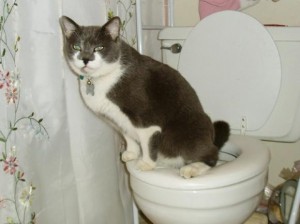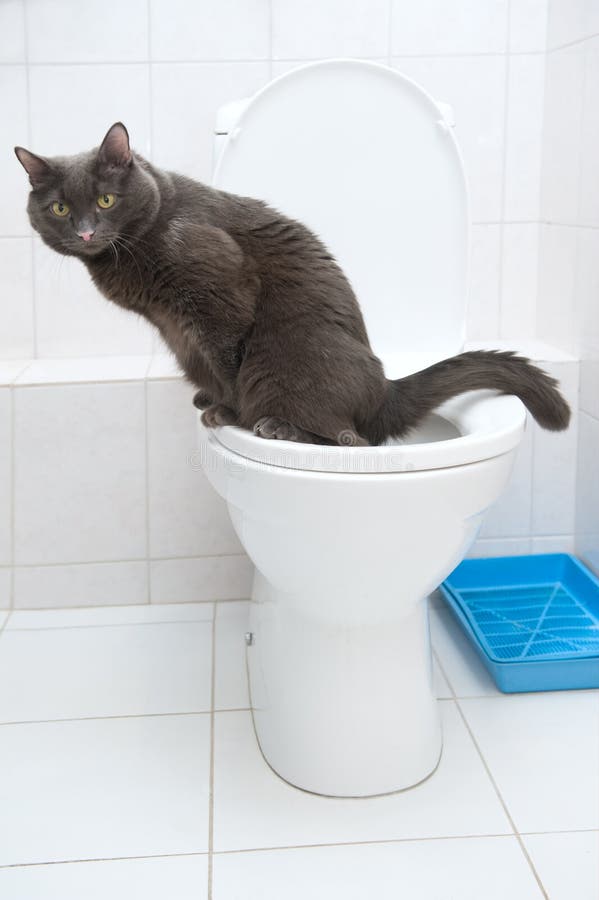Hazards of Flushing Cat Poop Down Your Toilet - Avoid Possible Issues
Hazards of Flushing Cat Poop Down Your Toilet - Avoid Possible Issues
Blog Article
They are making several good points about Can You Flush Cat Poop Down The Toilet? as a whole in this post directly below.

Introduction
As cat proprietors, it's important to be mindful of how we deal with our feline buddies' waste. While it might seem convenient to purge cat poop down the bathroom, this technique can have harmful effects for both the environment and human health and wellness.
Alternatives to Flushing
The good news is, there are safer and a lot more liable ways to throw away pet cat poop. Consider the following options:
1. Scoop and Dispose in Trash
One of the most usual technique of dealing with pet cat poop is to scoop it into a biodegradable bag and throw it in the trash. Make certain to utilize a devoted trash scoop and take care of the waste immediately.
2. Use Biodegradable Litter
Select naturally degradable feline trash made from materials such as corn or wheat. These trashes are eco-friendly and can be safely thrown away in the garbage.
3. Bury in the Yard
If you have a yard, think about hiding feline waste in a marked location far from veggie gardens and water sources. Make sure to dig deep sufficient to avoid contamination of groundwater.
4. Install a Pet Waste Disposal System
Invest in an animal waste disposal system specifically made for pet cat waste. These systems utilize enzymes to break down the waste, decreasing odor and ecological effect.
Health Risks
Along with ecological concerns, purging feline waste can also present health dangers to human beings. Cat feces may have Toxoplasma gondii, a parasite that can cause toxoplasmosis-- a possibly extreme illness, especially for expecting females and people with weakened body immune systems.
Ecological Impact
Purging pet cat poop presents harmful pathogens and parasites right into the water supply, posing a significant threat to water communities. These contaminants can negatively affect aquatic life and compromise water quality.
Verdict
Liable animal ownership expands beyond giving food and shelter-- it additionally includes appropriate waste monitoring. By refraining from flushing feline poop down the commode and opting for alternate disposal techniques, we can decrease our environmental footprint and shield human health and wellness.
Why Can’t I Flush Cat Poop?
It Spreads a Parasite
Cats are frequently infected with a parasite called toxoplasma gondii. The parasite causes an infection called toxoplasmosis. It is usually harmless to cats. The parasite only uses cat poop as a host for its eggs. Otherwise, the cat’s immune system usually keeps the infection at low enough levels to maintain its own health. But it does not stop the develop of eggs. These eggs are tiny and surprisingly tough. They may survive for a year before they begin to grow. But that’s the problem.
Our wastewater system is not designed to deal with toxoplasmosis eggs. Instead, most eggs will flush from your toilet into sewers and wastewater management plants. After the sewage is treated for many other harmful things in it, it is typically released into local rivers, lakes, or oceans. Here, the toxoplasmosis eggs can find new hosts, including starfish, crabs, otters, and many other wildlife. For many, this is a significant risk to their health. Toxoplasmosis can also end up infecting water sources that are important for agriculture, which means our deer, pigs, and sheep can get infected too.
Is There Risk to Humans?
There can be a risk to human life from flushing cat poop down the toilet. If you do so, the parasites from your cat’s poop can end up in shellfish, game animals, or livestock. If this meat is then served raw or undercooked, the people who eat it can get sick.
In fact, according to the CDC, 40 million people in the United States are infected with toxoplasma gondii. They get it from exposure to infected seafood, or from some kind of cat poop contamination, like drinking from a stream that is contaminated or touching anything that has come into contact with cat poop. That includes just cleaning a cat litter box.
Most people who get infected with these parasites will not develop any symptoms. However, for pregnant women or for those with compromised immune systems, the parasite can cause severe health problems.
How to Handle Cat Poop
The best way to handle cat poop is actually to clean the box more often. The eggs that the parasite sheds will not become active until one to five days after the cat poops. That means that if you clean daily, you’re much less likely to come into direct contact with infectious eggs.
That said, always dispose of cat poop in the garbage and not down the toilet. Wash your hands before and after you clean the litter box, and bring the bag of poop right outside to your garbage bins.
https://trenchlesssolutionsusa.com/why-cant-i-flush-cat-poop/

As a keen reader about How to Dispose of Cat Poop and Litter Without Plastic Bags, I imagined sharing that excerpt was a great idea. Sharing is caring. You just don't know, you could be helping someone out. Thanks a lot for your time. Please check our site back soon.
Schedule Service Pickup Report this page